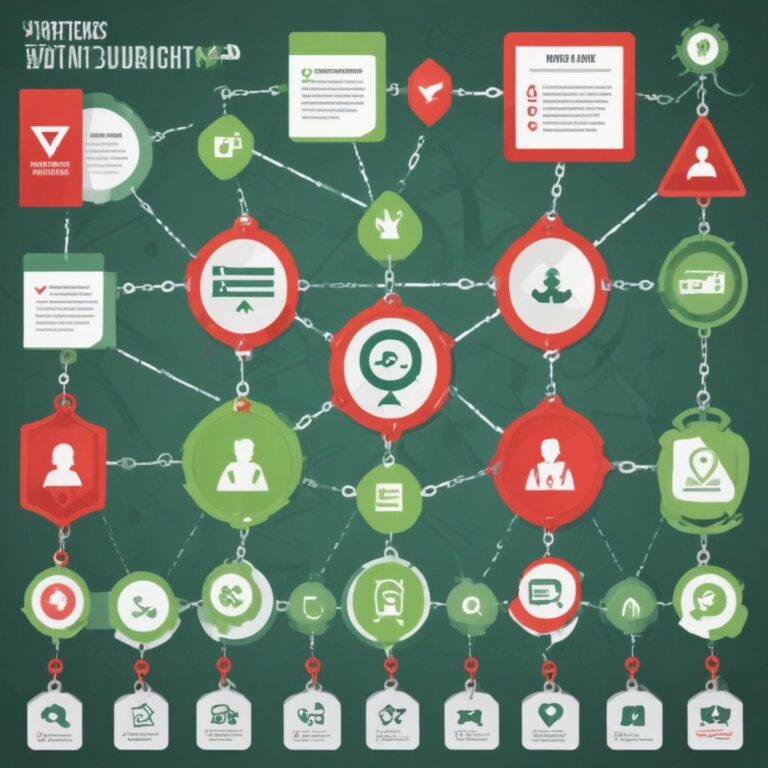How to Leverage Guest Blogging for Effective Link-Building
How to Leverage Guest Blogging for Effective Link-Building
In the vast and ever-evolving landscape of search engine optimization (SEO), link-building remains one of the most critical aspects of improving a website’s visibility. One effective strategy that has stood the test of time is guest blogging. Not only does guest blogging enable you to establish yourself as an authority in your niche, but it also helps you build valuable backlinks that can significantly enhance your website’s SEO. In this comprehensive guide, we’ll explore how to leverage guest blogging for effective link-building, while also understanding how Algoboost.io can help you tackle common SEO challenges.
Understanding Guest Blogging
Guest blogging involves writing and publishing an article on someone else’s website or blog. The primary purpose of guest blogging is to generate backlinks, enhance your online presence, and reach a wider audience. Here are some key benefits:
- Improved SEO: Backlinks from high-authority sites can boost your site’s credibility and search engine rankings.
- Increased Traffic: Guest posts can direct traffic to your site from readers interested in your content.
- Brand Awareness: It positions you as an authority in your field, enhancing brand recognition.
- Networking Opportunities: Connecting with other bloggers and influencers can lead to future collaborations.
Identifying the Right Platforms
Not all websites are created equal. To maximize your link-building efforts through guest blogging, you need to identify platforms that align with your goals. Here’s how to find the right sites:
1. Relevance is Key
Focus on websites that are relevant to your niche. A backlink from a related site is more valuable than one from an unrelated source. Consider the following:
- Industry blogs and publications
- Influencer websites
- Community forums and discussion boards
2. Check Domain Authority
Use tools like Moz’s DA checker or Ahrefs to determine the domain authority (DA) of potential guest blogging sites. Aim for sites with a DA of 30 or higher for optimal SEO impact.
3. Analyze Audience Engagement
Look at the site’s comments section, social media shares, and overall engagement to ensure you’re reaching an active audience.
Crafting Your Guest Post
Once you’ve identified suitable platforms, it’s time to create your guest post. This is where you can showcase your expertise and add value to the host site’s audience. Here are some practical tips for crafting an effective guest post:
1. Follow the Guidelines
Most websites have specific guidelines for guest contributors. Adhere to their word count, formatting, and subject matter requirements to increase your chances of acceptance.
2. Create High-Quality Content
Focus on providing genuine value to the readers. Your content should be informative, engaging, and well-researched. Here are some content ideas:
- Tutorials or how-to guides
- Case studies and success stories
- Industry trends and insights
3. Optimize for SEO
Incorporate relevant keywords naturally, use headers for better readability, and include internal links where appropriate. This will help your post rank better in search engines, driving more traffic to the host site and, in turn, your own.
4. Include a Call to Action
Your guest post should end with a compelling CTA, encouraging readers to visit your site for more information or to explore your services.
Building Relationships with Blog Owners
Guest blogging is not just about getting your name out there; it’s also about building relationships with other bloggers and influencers in your niche. Here’s how to cultivate these connections:
1. Engage Before Pitching
Before reaching out to a blog owner, engage with their content. Leave thoughtful comments on their posts, share their articles on social media, and show genuine interest in their work.
2. Personalize Your Pitch
When you’re ready to pitch your guest post idea, personalize your message. Mention specific articles you enjoyed on their site and explain how your post will add value to their audience.
3. Follow Up
If you don’t hear back after your initial pitch, don’t hesitate to follow up politely. Persistence can pay off, but be respectful of their time and decisions.
Measuring the Impact of Guest Blogging
Once you start publishing guest posts, it’s essential to track the results. Here are some metrics to consider:
- Referral Traffic: Use Google Analytics to track how much traffic is coming from your guest post links.
- Backlink Quality: Monitor your backlink profile with tools like SEMrush or Moz to see the impact on your domain authority.
- Engagement Metrics: Look at social shares and comments on your guest posts to gauge reader interest.
How Algoboost.io Can Help
At Algoboost.io, we understand that navigating the complexities of SEO can be challenging. Our platform provides a suite of tools designed to streamline your SEO efforts, including:
- Link Analysis: Evaluate the quality of your backlinks and identify opportunities for improvement.
- Content Optimization: Get insights on keyword usage, readability, and overall content quality to enhance your guest posts.
- Competitor Research: Analyze your competitors’ backlink strategies to uncover new guest blogging opportunities.
By leveraging Algoboost.io, you can tackle common SEO challenges, ensuring that your guest blogging efforts translate into tangible results.
Conclusion
Guest blogging is a powerful tool for effective link-building, offering a multitude of benefits that go beyond just backlinks. By following the strategies outlined in this guide, you can maximize your guest blogging efforts, enhance your online presence, and build valuable relationships in your niche. And remember, with the right tools like Algoboost.io by your side, you’ll be equipped to navigate the SEO landscape with confidence and ease.
Ready to take your SEO strategy to the next level? Explore Algoboost.io today and unlock your site’s true potential!





